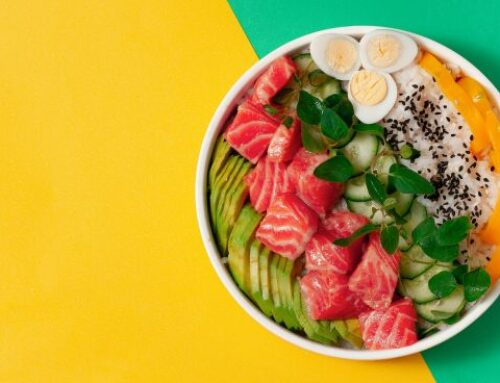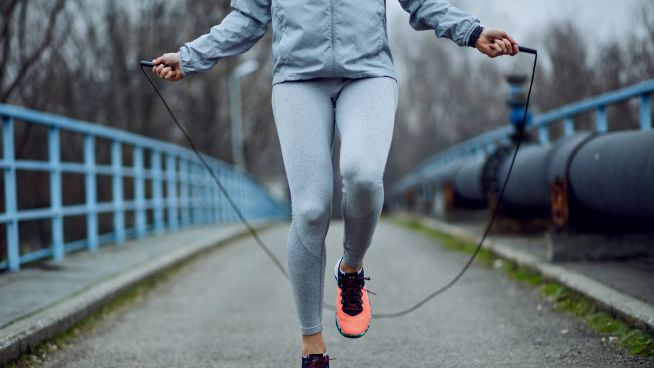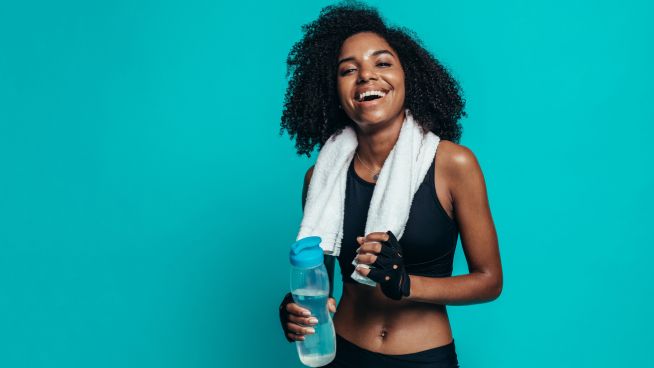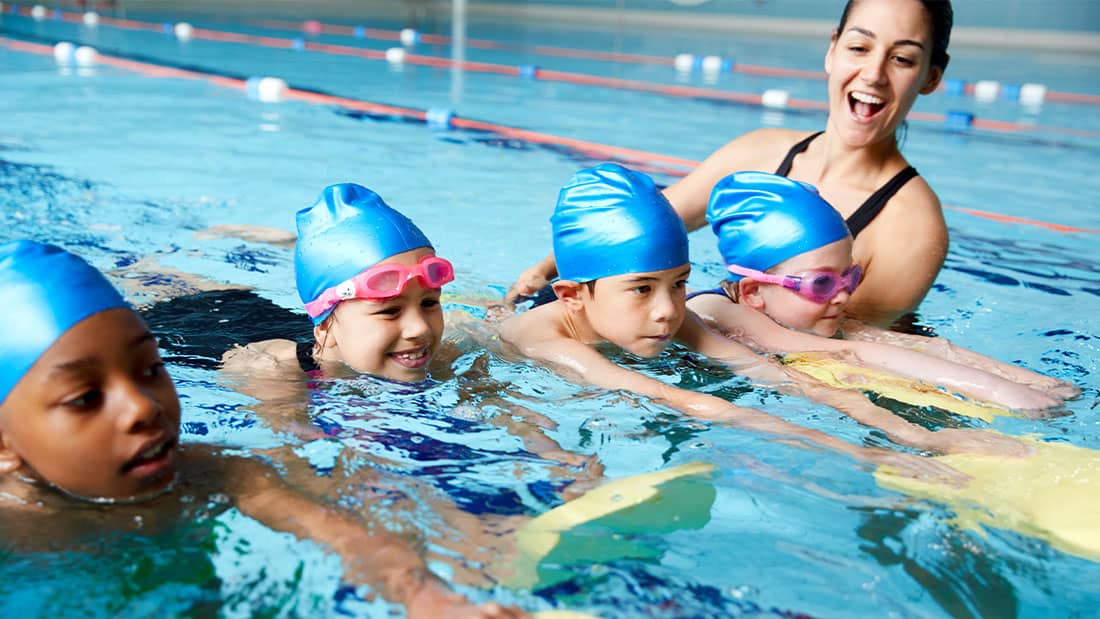The Benefits of Organic Foods
Think organic foods are only for vegetarians and tree-huggers? Think again. As an athlete, you can reap tons of benefits from incorporating these goods into your diet. Read on and learn.
“I encourage athletes to eat organic foods, because they give the body more of what it needs—health-promoting nutrients such as vitamins, minerals and plant compounds—and less of what it doesn’t—pesticides and chemicals,” says Julie Burns, founder of SportFuel, Inc. and nutritionist for the Chicago Blackhawks, Bears and White Sox.
Organic foods fuel your body in ways regular foods can’t. Incorporating them in your diet isn’t essential, but Burns says it’s “the ideal option for eating and providing the body with premium fuel.” Although non-organic options are cheaper, spending the extra cash is a solid investment in your health and performance. To the right is a list of organic products you can use in a sports nutrition diet—with their associated benefits.
Where to get your goods
If you plan on adding organic foods to your diet, you need to know where to buy them. Burns suggests hitting up local grocery stores, natural food stores, farmers’ markets and the Internet.
“I buy all my fruits and vegetables from a farmer,” she says. “Every weekend, June through November, I go and pick up a box of organic produce. Athletes can do the same thing and split it with their buddies. They can buy organic foods from farmers’ markets and some regular supermarkets.”
Specialty stores such as Trader Joe’s carry organic foods, and bulk stores such as Costco carry nitrate-free bacon. You’ll have to turn to the Internet, though, for more exotic foods, like grass-fed beef or CocoChia Bars.
The menu
The following sample eating plan is geared for a 140-pound male sophomore basketball player who is looking to gain weight, grow, speed recovery time and improve performance. Total calories can be adjusted based on weight—add 20-25 calories per extra pound of body weight. Note: Drink water in class throughout the day if allowed.
Breakfast: ~450 Calories
– 2 eggs* or 3 oz Canadian bacon*
– 1 medium banana or other fruit* dipped in 1 oz almond* or peanut butter*
– To increase nutritional value, sprinkle meal with ground flax
– A lot of water or green tea
Lunch: ~950 Calories
– 8 oz chicken* on 2 pieces of sourdough bread with 1.75 oz avocado spread and romaine lettuce
– 1.5 cups pineapple
– Carrots* and 2 tbsp of Annie’s Naturals Caesar Dressing for dipping
– A lot of water or green tea
After School Snack: ~250 Calories
– 1 CocoChia Super SeaGreens Bar
– Electrolyte sports drink and water
Pre-game meal: ~950 Calories
– 8 oz beef*
– 1.5 cups asparagus with ½ tbsp butter*
– 1.5 cups brown rice with 1 tsp olive oil
– A lot of water or a sports drink
During game: ~230 Calories
– 6 Clif Shot Bloks™ Organic Electrolyte Chews
– Electrolyte sports drink
Post game meal: ~600 Calories
– Recovery shake
– 1 tsp unrefined Celtic sea salt
– 2 scoops whey protein (PaleoMeal Organic Whey Protein from Designs For Health, or BioGenesis whey)
– 2 oz coconut milk*
– 2.5 cups cherry juice
– 1 oz meat sticks
** Indicates foods that can be replaced with organic alternatives
Products
Omega-3-fortified organic eggs
Omega-3 fatty acids are heart-healthy, performance-enhancing essential fats and immune system-builders that must be eaten on a daily basis. Most athletes don’t get enough.
Organic nut butter (examples include almond, pistachio and walnut)
Organic carrots
Organic butter
Organic coconut milk
These options provide more nutrients and vitamins than their non-organic counterparts and come without pesticides or chemicals.
Nitrate-free Canadian bacon
Nitrate free meat sticks
Nitrates are carcinogens. Consequently, these options have potential life-saving benefits.
Free-range, chemical-free chicken
Grass-fed beef
Free-range chicken and grass-fed beef have healthier fat in the meat. There is also greater Omega-3 fat content for health and performance benefits.
Ground flax (whole flax seed powder that can be sprinkled on foods to increase nutritional value)
CocoChia Super SeaGreens Snack Bars from Living Fuel
These products provide immune-enhancing lignans (a type of carbohydrate) and additional Omega-3 fatty acids to improve health and athletic performance.
Organic electrolyte chews (an alternative to gels and bars)
Electrolytes are essential for peak performance and need to be continually replaced.
Simple and portable, electrolyte chews are an effective game-time snack when consumed with adequate fluids.
Unrefined Celtic sea salt
Most athletes are mineral-deficient, especially in magnesium and iodine.
Adding this unrefined salt to your water increases your mineral intake.
RECOMMENDED FOR YOU
MOST POPULAR
The Benefits of Organic Foods
Think organic foods are only for vegetarians and tree-huggers? Think again. As an athlete, you can reap tons of benefits from incorporating these goods into your diet. Read on and learn.
“I encourage athletes to eat organic foods, because they give the body more of what it needs—health-promoting nutrients such as vitamins, minerals and plant compounds—and less of what it doesn’t—pesticides and chemicals,” says Julie Burns, founder of SportFuel, Inc. and nutritionist for the Chicago Blackhawks, Bears and White Sox.
Organic foods fuel your body in ways regular foods can’t. Incorporating them in your diet isn’t essential, but Burns says it’s “the ideal option for eating and providing the body with premium fuel.” Although non-organic options are cheaper, spending the extra cash is a solid investment in your health and performance. To the right is a list of organic products you can use in a sports nutrition diet—with their associated benefits.
Where to get your goods
If you plan on adding organic foods to your diet, you need to know where to buy them. Burns suggests hitting up local grocery stores, natural food stores, farmers’ markets and the Internet.
“I buy all my fruits and vegetables from a farmer,” she says. “Every weekend, June through November, I go and pick up a box of organic produce. Athletes can do the same thing and split it with their buddies. They can buy organic foods from farmers’ markets and some regular supermarkets.”
Specialty stores such as Trader Joe’s carry organic foods, and bulk stores such as Costco carry nitrate-free bacon. You’ll have to turn to the Internet, though, for more exotic foods, like grass-fed beef or CocoChia Bars.
The menu
The following sample eating plan is geared for a 140-pound male sophomore basketball player who is looking to gain weight, grow, speed recovery time and improve performance. Total calories can be adjusted based on weight—add 20-25 calories per extra pound of body weight. Note: Drink water in class throughout the day if allowed.
Breakfast: ~450 Calories
– 2 eggs* or 3 oz Canadian bacon*
– 1 medium banana or other fruit* dipped in 1 oz almond* or peanut butter*
– To increase nutritional value, sprinkle meal with ground flax
– A lot of water or green tea
Lunch: ~950 Calories
– 8 oz chicken* on 2 pieces of sourdough bread with 1.75 oz avocado spread and romaine lettuce
– 1.5 cups pineapple
– Carrots* and 2 tbsp of Annie’s Naturals Caesar Dressing for dipping
– A lot of water or green tea
After School Snack: ~250 Calories
– 1 CocoChia Super SeaGreens Bar
– Electrolyte sports drink and water
Pre-game meal: ~950 Calories
– 8 oz beef*
– 1.5 cups asparagus with ½ tbsp butter*
– 1.5 cups brown rice with 1 tsp olive oil
– A lot of water or a sports drink
During game: ~230 Calories
– 6 Clif Shot Bloks™ Organic Electrolyte Chews
– Electrolyte sports drink
Post game meal: ~600 Calories
– Recovery shake
– 1 tsp unrefined Celtic sea salt
– 2 scoops whey protein (PaleoMeal Organic Whey Protein from Designs For Health, or BioGenesis whey)
– 2 oz coconut milk*
– 2.5 cups cherry juice
– 1 oz meat sticks
** Indicates foods that can be replaced with organic alternatives
Products
Omega-3-fortified organic eggs
Omega-3 fatty acids are heart-healthy, performance-enhancing essential fats and immune system-builders that must be eaten on a daily basis. Most athletes don’t get enough.
Organic nut butter (examples include almond, pistachio and walnut)
Organic carrots
Organic butter
Organic coconut milk
These options provide more nutrients and vitamins than their non-organic counterparts and come without pesticides or chemicals.
Nitrate-free Canadian bacon
Nitrate free meat sticks
Nitrates are carcinogens. Consequently, these options have potential life-saving benefits.
Free-range, chemical-free chicken
Grass-fed beef
Free-range chicken and grass-fed beef have healthier fat in the meat. There is also greater Omega-3 fat content for health and performance benefits.
Ground flax (whole flax seed powder that can be sprinkled on foods to increase nutritional value)
CocoChia Super SeaGreens Snack Bars from Living Fuel
These products provide immune-enhancing lignans (a type of carbohydrate) and additional Omega-3 fatty acids to improve health and athletic performance.
Organic electrolyte chews (an alternative to gels and bars)
Electrolytes are essential for peak performance and need to be continually replaced.
Simple and portable, electrolyte chews are an effective game-time snack when consumed with adequate fluids.
Unrefined Celtic sea salt
Most athletes are mineral-deficient, especially in magnesium and iodine.
Adding this unrefined salt to your water increases your mineral intake.












